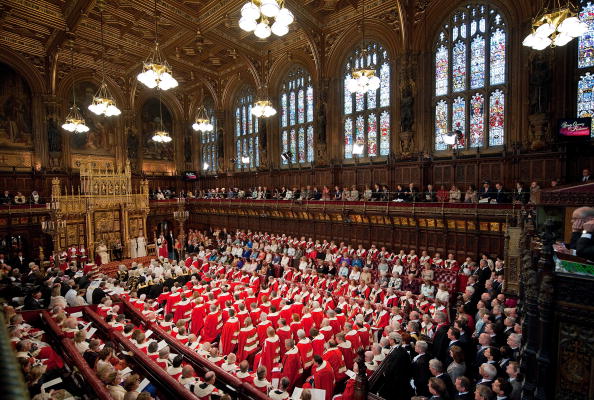Stuffing the House of Lords with your friends is practically a parliamentary tradition

To consolidate his Brexit position, Boris Johnson is rumoured to be lining up a selection of “Brexit heroes” for elevation to the Lords – a line of eurosceptics in ermine, ready to take to the red benches to shore up his support in the upper house.
It is a politically expedient plan, with the Conservatives outnumbered in the second chamber and many of their peers leaning towards the softest of Brexits.
And despite what some may say, stuffing the Lords is by no means a constitutional outrage. It is a matter of precedent as old as our modern conception of parliamentary democracy.
In 1831, the upper chamber rejected the Great Reform Bill which sought to radically alter both suffrage and constituency boundaries – abolishing rotten practices which empowered landowners.
When they did the same thing again the following year, the then Prime Minister Charles Grey urged the King to appoint 80 pro-Reform peers to overwhelm the opposition. The threat was enough to quell the Lords, and the primacy of the elected members was significantly bolstered.
This sort of confrontation was repeated in 1911. Lloyd George’s “People’s Budget” sought to tax wealthy landowners to “wage implacable warfare against poverty and squalidness”. Naturally, the Lords (still the preserve of hereditary peers) rejected this.
Prime Minister Asquith, in support of his chancellor, obtained an undertaking from the King to create enough Liberal peers to force legislation through and went to the country on a platform of Lords reform. With the support of the sovereign and the people, the Lords was formally reduced to its position as a reviewing chamber – able to delay, but not defeat much government legislation.
Over a century later, the Lords has failed to be fully reformed. Life peers and women have been added, and all but 92 hereditary peers removed, greatly changing its composition. It remains unelected, however, and therefore its make-up can greatly differ from that of the Commons. This causes obvious pinches where controversial legislation is concerned.
As a result, every incoming administration has looked at the Lords and thought of who they could put in to boost their numbers. Stuffing the Lords has become almost routine, with an average of 23.2 lords a-leaping onto the red benches per year since the Life Peerages Act 1958.
The house has grown to be the largest upper chamber in the world, more than twice the size of its nearest (elected) rival.
It is really no surprise that Boris is looking to follow suit.
For a Prime Minister with a bold strategy and a slim Commons majority, being outnumbered in the other place is a real challenge.
The current Prime Minister lacks the numbers on the green benches to reliably force legislation through both Houses, and without an election he cannot rely on the Salisbury Convention which requires the Lords to agree to laws which were included in a winning manifesto.
Of course, such a decision is not without consequence. Any meddling with the unelected upper house can look undemocratic, but moreover, as Lords remain in place for life, you are storing up trouble for your successors, whichever party they hail from.
A future Tory Prime Minister may have to battle with Brexit Peers in 20 years’ time, while if a Corbyn government lacks the numbers to abolish the upper chamber entirely, he could fill the red benches with red flag wavers.
With the Lords remaining in its current form – a hodgepodge of former MPs, retired civil servants, and senior sons of ancient families (plus some bishops) – this is the position we face.
There is nothing necessarily undemocratic about an unelected chamber – it can be a useful way of bringing outside experts into decision-making, and a balance against the dictatorship of the 50-per-cent-plus-one.
But as a fudge over a century in the making, the current system only invites shenanigans when the Commons clashes with the Lords.
Indeed, Boris may wish to follow more inventive precedents to get his way. When Lloyd George was Prime Minister himself, he simply sold peerages to donors.
Such practices have been outlawed, but could perhaps be revived to support the Treasury, or else copy the old Japanese House of Lords, and reserve seats for election from the highest taxpayers.
More dubiously, Boris could employ the ruse used by Lord Grey in the passing of the Habeas Corpus Act 1679. Facing a narrow defeat, the teller counted a particularly overweight peer as 10 votes, allowing the bill to pass.
If the House of Lords did not exist in its current form, no one would feel the need to invent it. Yet without a clear plan as to how or why to reform it, it will stay as it is.
Boris will not be the last Prime Minister to move his mates and supporters to the House of Lords – indeed, in these days of constitutional convulsions it is a reassuringly traditional move.
Main image credit: Getty
